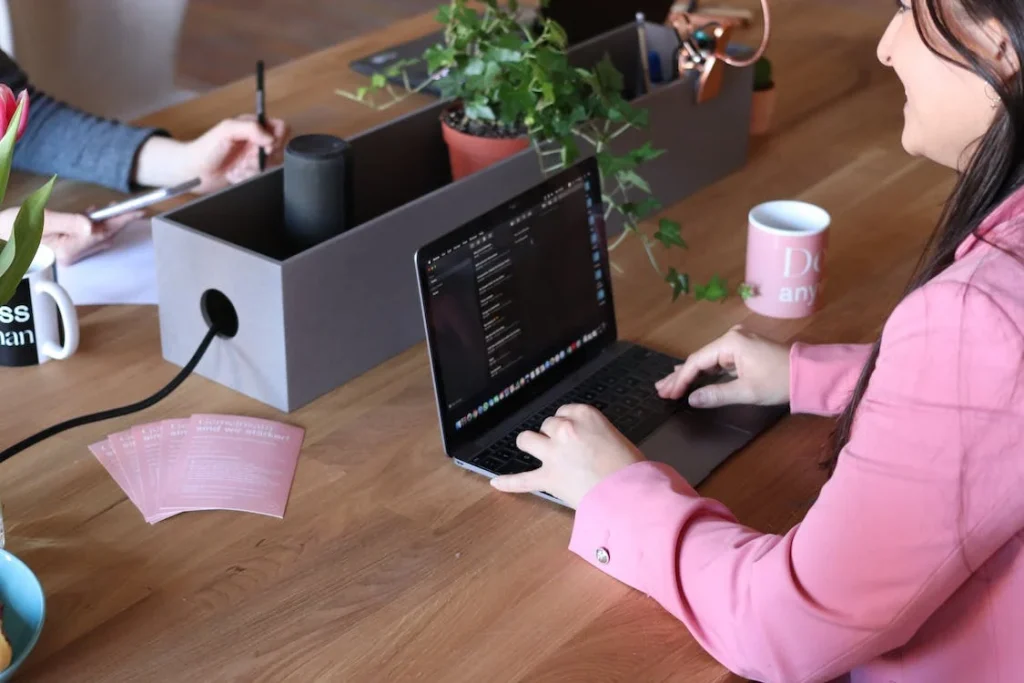In the pursuit of academic success, students often envision a scenario in which they accomplish more in less time. This is the ideal study utopia: mastering subjects swiftly, completing assignments with ease, and still finding time to relish life beyond books and lectures.
You are often overwhelmed with numerous study techniques and productivity tips, each claiming to be the ultimate solution. The quest for the ‘ideal’ strategy can become a distraction in itself, leading us to overlook our main objective: efficient learning.
Imagine the solution not being in endless searching, but in changing the approach. Based on research, tried methods, and what top students do, here’s a list of simple yet effective study tips. These aren’t mere suggestions but real steps anyone can follow.
| Adopt the strategies from this guide, and studying will become more than just a task; it will be a road to success. Delve into these productivity tips, put them into action, and see a noticeable improvement in your academic journey from today. |

Productivity tips: Making everything fit
Have you ever thought about whether you can get so much done that you feel like there’s more time in the day? Can you really make every hour count, and fit both work and fun into the day? Check out these first six productivity tips to help manage your time better and make the most of your day.
1. Implement a system that doesn’t rely on willpower
When a day’s tasks require continuous choices about the next focus or when to pause, it can lead to exhaustion.
One of the top productivity recommendations, applicable to both work and study, highlights how important it is to pre-planning. It’s beneficial to determine all aspects in advance: what to do, when, and for how long. This way, the primary task becomes simply diving into the work without more thinking.
There are two primary strategies to pre-plan your study or work sessions. Here’s a clue: you can adopt one, the other, or even blend both:
- Set up a regular study or work routine that feels so normal, changing it seems weird. This approach is effective when you have a predictable schedule, such as spending 15 minutes on vocabulary after dinner or reviewing a chapter every evening before bedtime.
- Draft a study or work schedule for the upcoming day or the next few days and adhere to it.
Opting for a short-term plan is especially useful when life’s events are more unpredictable!
2. Group similar tasks together when possible
For students aiming to optimize their study and daily routines, the concept of “batch processing” can be a game-changer. Just like experts in different fields suggest doing similar tasks together to save time, students can do the same.
Consider this: Instead of jumping between different subjects quickly, set aside specific times for each subject. Concentrating on one subject at a time can help you understand better and finish faster.
Here’s how you can incorporate batch processing into a student’s life:
- Prepare meals in advance on weekends and store them for the week – this minimizes daily cooking interruptions.
- Instead of doing laundry daily, gather clothes and wash them in larger loads once a week.
- Check and reply to study group chats or emails once or twice a day instead of being disrupted multiple times throughout your study session.
The goal is to minimize frequent switches between tasks, making your day smoother and giving you extra hours for studies and relaxation.
3. Remove obstacles in your way
For a seamless workflow during study or work sessions, planning ahead is crucial. By preparing everything in advance, you avoid unexpected interruptions—like the annoyance of realizing you’ve forgotten an essential textbook right when you’re most involved.
- Prepare your textbooks and gather your writing tools.
- Ensure all necessary digital devices are charged.
- Make sure monthly reports are accessible for review.
- Have water and snacks at hand.
Preparing everything in advance allows you to work or study without interruptions, enhancing your productivity.
In addition to physical preparations, ensuring the quality of your written assignments is essential. Our platform offers comprehensive proofreading services that can help refine and elevate your academic work. By utilizing our proofreading expertise, you can submit assignments with confidence, knowing they are free from grammatical errors and are polished to meet high academic standards. This not only saves time but also improves your overall productivity in your academic journey.
4. Select or create an environment that fosters productivity
The environment in which you study plays a significant role in determining your productivity, a fact that might come as a surprise to some.
- Seek a place with a focused ambiance.
- Ensure there’s appropriate lighting.
- Choose a comfortable workspace with a good surface for writing or placing a laptop.
A crucial suggestion: if possible, avoid studying in the room where you sleep. Separating these two spaces can enhance both relaxation and concentration.
The ideal environment can vary based on the task at hand:
- For intense studying: Seek the quiet of a library.
- For creative tasks: The ambient noise of a coffee shop might stimulate your creativity.
- For online sessions or virtual meetings: Noise-canceling headphones can be invaluable.
Try out various locations and discover the one that resonates most with your workflow!
5. Taking breaks boosts productivity
It’s important to understand that you can’t keep working hard non-stop; everyone needs breaks to refresh and refocus. Short, frequent breaks can significantly boost productivity, whether you’re studying or working. Here are a few key points:
- Move around. Always step away from your desk during breaks. Even a quick change in surroundings and a little stretch can refresh your mind and body.
- Pomodoro Technique. If you find it hard to remember to pause, consider this technique. This renowned time-management strategy alternates between focused work sessions and short breaks. Typically, you set a timer for 25 minutes, work attentively during that period, and then take a brief break when the timer sounds. By using this method, you strike a balance between work and rest, which can significantly boost your overall productivity.
Taking regular breaks and using methods like the Pomodoro Technique can make a big difference in how well you work or study. Remember, it’s about striking the right balance between focus and relaxation to enhance your productivity.
6. Make it enjoyable
Work doesn’t have to feel like a never-ending chore. By incorporating some motivational treats into your routine, you can turn study sessions into rewarding and enjoyable experiences:
- Personalized playlists. Curate different playlists for different moods—upbeat for energy, classical for focus, or nature sounds for relaxation.
- Aromatic surroundings. Use scented candles or diffusers with calming essential oils like lavender or invigorating ones like citrus or peppermint.
- Break rewards. Schedule short breaks and reward yourself with a treat like a piece of dark chocolate or a few minutes of relaxing activity.
- Invest in quality stationery. Writing feels more delightful with a fine pen on sturdy paper, ensuring no ink bleeds through.
- Comfortable seating. Getting a padded chair or putting a soft cushion on your current seat can make you more comfortable.
- Inspiring wall decor. Hang up motivational quotes, posters, or pictures of your goals to keep you inspired.
- Background lighting. A desk lamp with adjustable brightness can set the mood and reduce eye strain.
Remember, the key is to choose treats that align with your personal preferences and enhance your productivity rather than distract you from your tasks.

Productivity tips: The mastery of complete concentration
Achieving total concentration is a skill that’s easier said than done. Getting better at staying focused can significantly improve students’ output and quality of work. However, many students find it challenging to consistently apply the productivity tips highlighted below. Ironically, when they manage to follow these recommendations, their work gets much better and it’s really noticeable. Let’s delve into these techniques to understand their potential impact on productivity.
7. Your mind is a special place
To achieve optimal focus during work or study sessions, it’s crucial to manage what you feed your mind, especially right before and during these periods. Follow these guidelines:
- Finish each task before starting the next one.
- Avoid engaging in quick activities that might result in unfinished tasks.
The reason behind these guidelines:
- Whenever you divert your attention from one unfinished task to another, there’s a likelihood of dragging an “attention residue” from the first task.
- This leftover thought takes up some of your mind’s space, making it harder to fully engage with the subsequent task.
For example:
How often do you peek at your phone notifications, noticing a message you intend to answer later? Each such instance ensures that the thought of the yet-to-be-responded message stays with you, proving to be a distraction when you’re trying to concentrate. For better focus, try these tips:
- Limit checking your phone notifications to 1-2 times a day.
- Avoid looking at them right before you’re about to engage in focused work.
By doing this, you gift your mind the “breathing space” it requires to concentrate without any disruptions.
8. Don’t counteract your efforts during breaks
It’s emphasized that regular short breaks are crucial for maintaining focus and productivity; however, the activities you engage in during these breaks are equally important.
Be mindful of your break activities, ensuring they don’t create lasting distractions when you return to your work.
Activities like browsing social media, watching short video clips, reading online comments, or flipping through magazines can result in distractions that interfere with your concentration once you return to your studies.
For your brief 10-15 minute breaks, consider:
- Making a cup of tea
- Taking a short walk outside
- Stretching for a few minutes
- Listening to a calming instrumental track
A casual chat with a friend or study buddy is also fine, as long as the topics are light and don’t lead to deeper, distracting discussions.
9. Kindly set your phone aside
If you believe your breaks should be distraction-free, it logically follows that your work sessions should be phone-free.
This isn’t the first time you’ve been advised to put your phone away during work. Whether it’s advice from your college, your tutors, scientists, or productivity experts, perhaps there’s some truth to it?
In our modern, fast-paced digital age, smartphones are essential. They keep us connected, updated, and entertained, but they can also become significant distractions when aiming for productivity. By intentionally setting your phone aside, you open the door to improved focus and efficiency. Below are some productivity tips to help minimize phone distractions:
- Scheduled phone usage. Allocate specific periods to check social media, emails, and messages, addressing them in groups.
- Use “do not disturb” mode. Activate this mode when working on tasks that require concentration, allowing only vital calls or alerts.
- Physical separation. Consider leaving your phone in another room during intense work sessions.
- Revise notification settings. Disable notifications for non-essential apps, ensuring only crucial alerts come through.
- Screen-free start. Spend the first 20-30 minutes after waking without your phone to set a positive, focused tone for your day.
- Educate others. Inform friends and family about your dedicated focus times to minimize interruptions.
The example, why are phones a study concern:
- One study revealed students lose 8 minutes of focus every hour due to apps like Snapchat, Instagram, and Facebook. So, studying 3 hours daily leads to almost 3 hours of distractions weekly. Imagine what you could achieve in that time…
Do yourself a favor: switch off or silence your phone, and allow yourself room to concentrate.
10. Write down your tasks instead of memorizing them
In the busy world of academics and work, our minds can get filled with lots of things to do. To stay focused and get more done, it’s important to handle these things that distract us. Here’s a simple plan to help you manage all the stuff in your head:
- Don’t use up your brain thinking too much about all the different tasks you have to do.
- Always keep a “distractions list” close by. This is a favorite “quick fix” for an unexpected boost in productivity.
- Whenever a thought comes into your mind that stops you from focusing, like remembering to water the plants, seeing a new email, or thinking about what movie to watch later, write it down on your list. This way, those thoughts won’t stay in your mind and make you lose focus.
- Reserve the tasks from your distractions list for longer breaks, as they might be too disruptive for brief 5-minute pauses.
- For bigger tasks that make you feel heavy, put them into your plan for the next day. When a task has its own time set, you don’t have to keep thinking about it. Keep things simple and concentrate.
Empower yourself to clear your mind. By adopting these strategies, you’ll enhance your productivity and concentration. This will not only boost your excitement to do more but also help you decide what’s most important. Try the new way and see your work get better!

Productivity tips: What to do when work slows down?
Sometimes, we all get really tired from working or studying. It’s like our brain power is all used up, and we can’t keep going. But don’t worry, there are two more productivity tips to help you out during these times. They’re like a helping hand to get you back on track and focused again.
11. Turn procrastination into something productive!
It’s normal that there will come a time for our minds to wander or for us to feel a bit tired, reminding us that we’re not machines. Sometimes, it’s tough to get back to work after a break.
In these times, having a backup plan can help a lot. Make a list of simple “procrastination activities” that don’t need a lot of effort. These tasks are still important but not the main things you’re working on. By having this plan, you can turn these moments into chances to do something useful instead of just stopping completely.
For example:
- This is a good moment to do some things you’ve been thinking about. You could clean up your room, which you’ve been wanting to do. Another option is to go buy groceries to get the things you need at home. Or you could do something fun, like drawing or playing a game. These are all things you can do when you want a break from your main work or studying.
Even if it wasn’t what you were originally planning, these activities can still be helpful for getting things done. Just remember, if you find yourself doing these kinds of things a lot, especially when an important deadline is near, it’s a good idea to pay attention and find a balance between them and your main tasks.
12. Be happy about what you’ve done.
Learning is a journey filled with its highs and lows. It’s essential to acknowledge the moments when we reach a peak and truly appreciate the hard work that has led us there. Remember, it’s not just about the destination, but also the steps we take and the progress we make along the way. With that in mind:
- Recognize success. Celebrate every milestone, no matter how small.
- Share wins. Discuss your progress with peers or mentors for feedback and motivation.
- Visualize progress. Keep a journal or chart to track and reflect upon your learning journey.
- Treat yourself. Reward yourself periodically to stay motivated and keep the journey enjoyable.
Every step in the learning journey counts. Celebrate each achievement, big or small. Share your progress, keep track of your growth, and remember to reward yourself along the way. Your dedication and passion will lead you forward. Keep pushing and savoring every moment!
Conclusion
| In the world of academics and professional growth, productivity is more than just a catchphrase; it’s a lifeline. Embracing powerful productivity tips isn’t just about getting more done in less time—it’s about enhancing the quality of your work. Equip yourself with the best strategies, be adaptable, and above all, believe in your ability to overcome challenges. As you move forward with your studies and work, keep improving your way, and you’ll not only witness a boost in productivity but also a transformation in how you see challenges. Stay motivated, and stay effective! |
